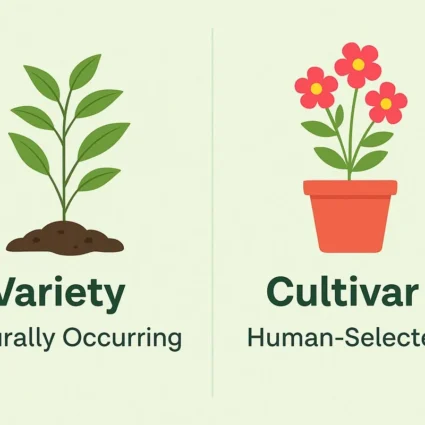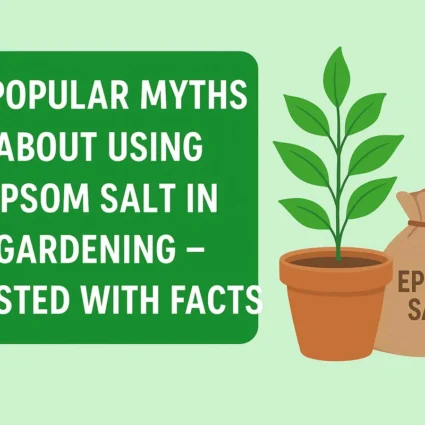
What Is Essential Nutrients For Plant Growth
We cannot even imagine our life without trees and plants. The more trees and plants around us, the happier and healthier our life will be. Many people like trees and plants very much and they also like to plant them in their home and garden. If you are also fond of gardening, then you must have always noticed how trees and plants grow and what is necessary for their growth. In this article, you will know what is necessary for the growth of the plant.
Also Read This :How To Apply Lime To Vegetable Garden
Explain that, like humans and animals, water, nutrients, sunlight, and air are all needed for the development of plants. Almost all plants obtain nutrients from water and soil through their roots. Plants build their different parts by taking water and nutrients from the soil, carbon dioxide from the air, and light energy from the sun through their roots.
Also Read This :How to Decorate the Garden with Pebbles
Nutrients are classified as follows according to the requirement of plants.
- Main nutrients – Nitrogen, Phosphorus, and Potash.
- Secondary nutrients – calcium, magnesium, and sulfur.
- Micronutrients- Iron, Zinc, Copper, Manganese, Molybdenum, Boron, and Chlorine.
Also Read This :How To Grow And Care Morning Glory From Seed
Essential nutrients and their functions in plants
A total of 17 nutrients are required for the normal growth and development of plants. A deficiency of any one of these nutrients adversely affects the yield and a bountiful crop is not available. Plants obtain carbon, hydrogen, and oxygen from air and water. Plants obtain nitrogen, phosphorus, and potassium from the soil. Plants need it in large quantities. These are called major nutrients. Plants take calcium, magnesium, and sulfur in small amounts. These are called good or secondary nutrients. The elements iron, zinc, manganese, copper, boron, molybdenum, and chlorine are required by plants in very small amounts. These are called micronutrients.
Also Read This :How to Use and Benefits Cocopeat for Plants
Functions of nutrients
Nitrogen
It is helpful in the growth and development of all living tissues ie root, stem, leaf. Chlorophyll is an important component of protoplasm proteins and nucleic acids. Improves the quality of leafy vegetables and fodder.
Also Read This :Easy way to grow Strawberry at Home
Phosphorus
Necessary for the development of the growing tip of plants, seeds, and fruits. Helps in flower development. Required for cell division. Helps in the development of roots. It is a component of nucleic acids, proteins, phospholipids, and co-disorders. It is a component of amino acids.
Also Read This :What is Coco peat ? & How to Make Coco peat at Home
Potassium
Increases activity of enzymes. Increases the use of light by plants in cold and cloudy weather, which increases the ability of plants to tolerate cold and other adverse conditions. Helps in the transfer of carbohydrates, protein synthesis, and maintaining their stability. Disease resistant capacity of plants increases. Its use increases grain size and increases the quality of fruits and vegetables.
Also Read This :How To Make Used Tea Leaves as Fertilizer
Calcium
A major component of the cell wall is essential for normal cell division. It helps in maintaining the stability of cell membrane. Increases activity of enzymes. Neutralizes organic acids in plants and eliminates their toxic effects. Helps in the transfer of carbohydrates.
Also Read This :What is hydroponics and how does it work?
Magnesium
is the main element of chlorophyll, without which photosynthesis (food formation) is not possible. Increases the activity of many enzymes participating in carbohydrate-metabolism, synthesis of nucleic acids, etc. Increases the absorption and transfer of phosphorus.
Also Read This :Indoor Plants that Grow in Water and Easy to Manage
Sulfur
Helps to stabilize the protein structure. Helps in oil synthesis and chlorophyll formation. Contributes to vitamin K metabolism.
Zinc
It is helpful in the use of phosphorus and nitrogen by plants. Helps in nucleic acid and protein synthesis. Contributes to the biosynthesis of hormones. Many types of minerals are essential parts of enzymes.
Also Read This :Everything You Need To Know About Successful Companion Gardening
Copper
Increases the production of Vitamin ‘A’ in plants. It is a component of many enzymes.
Iron
Essential for the synthesis and maintenance of chlorophyll in plants. Plays an essential role in the metabolism of nucleic acids. It is an essential component of many enzymes.
Also Read This :Do Seeds Need Darkness to Germinate
Manganese
Regulates activities in plant cells under light and dark conditions. Increases the activity of enzymes participating in nitrogen metabolism and synthesis of chlorophyll. It is helpful in conducting many important enzymatic and cellular reactions occurring in plants. Oxidation of carbohydrates results in the formation of carbon oxides and water.
Boron
Required for protein synthesis. Affects cell division. Affects the absorption of calcium and its utilization by plants. increases the permeability of cell membranes
Also Read This :Seeds That Require Light to Germinate
Water
Water is essential not only for animals and humans but also for plants. With the help of water, plants send moisture and nutrients from the roots to the leaves. If plants are not given the right amount of water at the right time, they may dry up. Depending on the type of plant, the water requirement of each plant also varies. That’s why some plants need more water, some plants need less water.
Pure Air
Apart from water and nutrients, clean air and healthy soil are essential for plants. Dirty air caused by polluted air, smoke, toxic gas, and other polluting substances can prove to be harmful to plants. When the air available to plants is not pure, the plant’s ability to take carbon dioxide from the air to make food (photosynthesis) is limited. As a result, plant growth may be stunted and plants may die.
Also Read This :Vegetable Seeds That can be Directly Sown
Nutritious Soil
Healthy and nutritious soil are necessary for the good growth of plants. The plant grows only with the help of nutrients (organic matter and micro-organisms) found in the soil. If the soil is not good or lacks nutrients, it can stunt the growth of your plants.
Sunlight and Temperature
Plants need sunlight for growth. Plants use sunlight as energy to make food, a process called photosynthesis. If the plants do not get proper amount of sunlight, then the plants become weak and their growth of the plants may stop. Along with light, the temperature of the environment is also important for the growth of plants.
Also Read This :How to Grow Mogra Flower from Cuttings at Home
Proper Place
Whenever the plants are planted, it is also necessary to choose a proper place at that time. If the plants are planted in a space that is not sufficient for them, then the plants may become dwarf or very small. For good growth and development of the plant, there should be enough space for both the root and the leaves to grow.
Time
Whenever you plant a plant, it needs a certain amount of time to grow. Because no plant can grow overnight after planting. Whenever you plant a plant in your garden or home, be patient because the roots of the plant also take time to develop. Apart from this, some plants grow quickly and some plants may take more time to grow.
Also Read This :All you need to know about Vegetable Transplant




